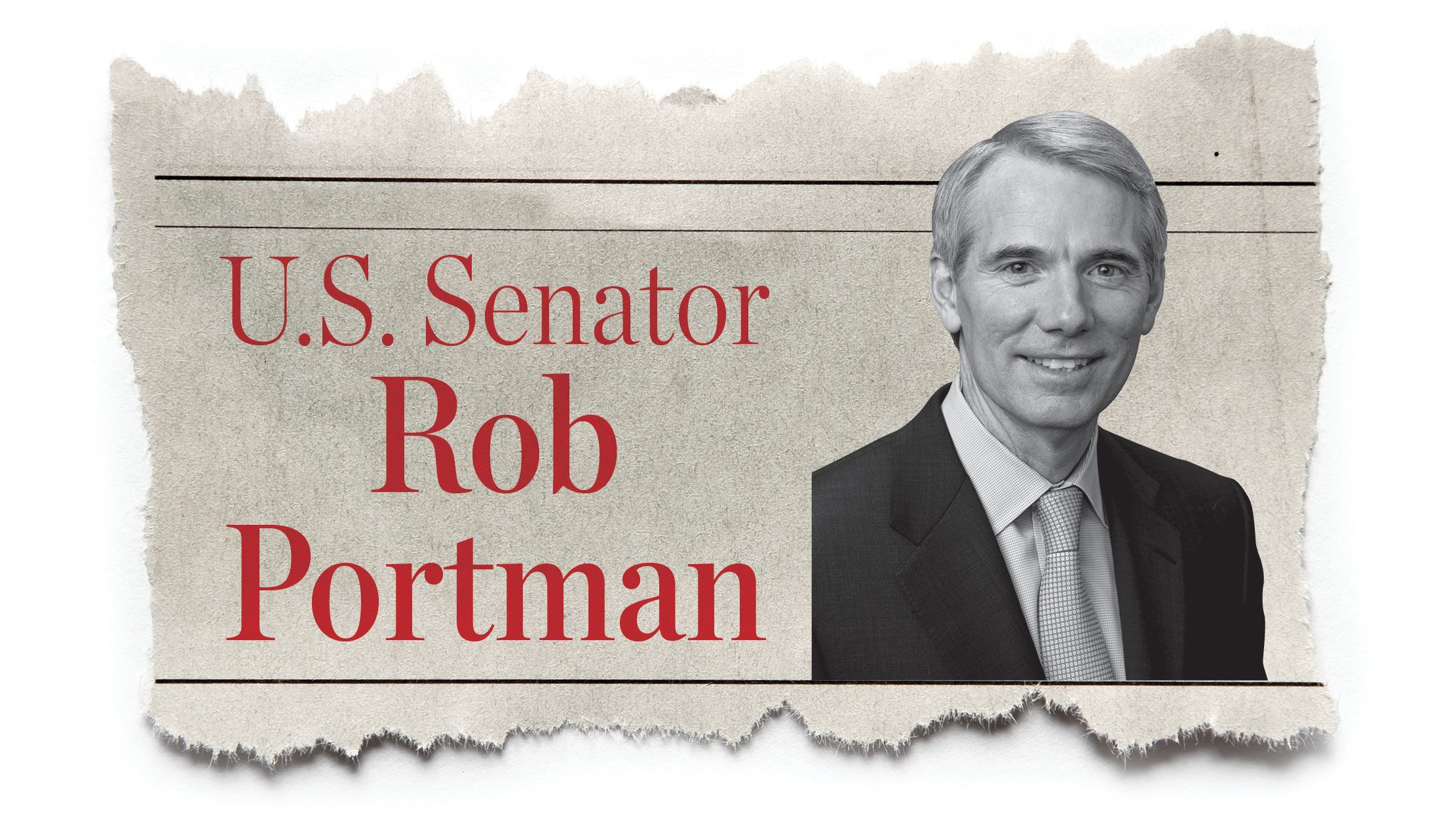U.S. Sen. Rob Portman: Addiction crisis must stay in focus
Published 1:00 am Sunday, May 10, 2020
As the coronavirus pandemic has gripped the world, it seems as though every aspect of life before this crisis has been put on hold.
Schools are closed, church pews are empty and businesses have shuttered. Yet even in this unprecedented time, we cannot forget about the many concerns we had before the pandemic.
For over 25 years, I have focused on addressing and combating the drug addiction issues — including the opioid epidemic that has gripped countless communities in Ohio and elsewhere over the past 10 years.
In recent years, I have been encouraged by the progress we have made in turning the tide on this disease, especially with regard to opioids like heroin and painkillers. In 2017, Ohio’s opioid overdose death rate was almost three times the national average, with nearly a dozen Ohioans dying from these dangerous drugs every day, surpassing car crashes as our state’s number one killer. The next year, we were one of the leaders in turning the tide with a 22 percent decrease in overdose deaths, as drug overdose deaths declined nationwide for the first time since 1990.
Over the last couple of years, prior to the coronavirus, we continued to make steady progress. We achieved these strides thanks in part to legislation like the 21st Century CURES Act and the Comprehensive Addiction & Recovery Act (CARA) I authored at the federal level to provide state and local government and nonprofit groups with additional resources for proven prevention, treatment and recovery programs.
We have also ensured that our first responders on the front lines of this crisis have the resources, including the miracle drug naloxone, to help stop overdoses. This kind of continued support has been critical to helping communities make progress in combating this disease of addiction, and I have been proud to help lead the effort at the federal level.
Unfortunately, during the ongoing coronavirus crisis, we have seen our overdoses start to rise. Earlier this month, Montgomery County officials reported 37 overdoses in March, the highest monthly total in three years, and we had another 35 overdoses that month in neighboring Hamilton County.
Elsewhere in our state, Franklin County saw six suspected overdose deaths in one 24-hour period last Friday, and Coshocton County had 10 overdose deaths between March 15 and April 15, more than double the amount over the same timeframe in 2019.
This is devastating. The social distancing measures designed to slow the spread of coronavirus appear to have led to more opioid abuse at the exact same time that our health care resources have been redirected to treat patients of this deadly new pandemic.
The federal response to the coronavirus pandemic has included certain measures to ensure those suffering from addiction can continue to get the care they need. In particular, we have done a lot to cut red tape and regulatory relief to expand telehealth options for opioid treatment, as well as increase the number of alternate delivery methods for patients quarantined at home to maintain their access opioid treatment providers. These reforms have been helpful.
However, these tragic overdose deaths in Ohio show that there is more that must be done, and for many in recovery, there is no substitute for the in-person care that our addiction specialists normally use to support the recovery of patients. I believe that we must begin to return to normalcy so that this kind of personal treatment can resume.
To do so, we must continue to quickly expand our testing capabilities so that we can track and monitor the spread of the coronavirus, because testing helps us form objective science-based decisions. Ultimately, when we start to see the number of new cases decline, more Americans will have the confidence to begin to return to their normal daily lives in an incremental manner, and that includes those in recovery and the men and women who work tirelessly to help patients struggling with addiction recover from their illness.
At the same time, as we practice social distancing, we need to give our mental health and addiction workers adequate tools to help their patients.
Last week, I spoke with addiction and mental health leaders from across the state to hear how they were adapting during the pandemic. They were concerned about isolation for people struggling with addiction, but highlighted new resources available for online meetings and recovery support along with the telehealth for addiction treatment.
I was urged to seek changes to permanently allow these services. In addition, rural communities told me that they still struggle with broadband, which has hampered their ability to access care and recovery support. Recovery houses for people who are sober are struggling because many residents have suddenly lost their jobs. What’s more, behavioral health profession still lack access to the PPE they need to be safe. I’m committed to working with my colleagues on solutions to all these challenges.
There is no question that the greatest priority facing our country at this moment is the unprecedented coronavirus pandemic. But recent examples of overdose deaths around the state show that there is even more at stake here than we realize. Not only must we ensure our addiction health services have the resources they need to adapt to this new reality, but we must also redouble our efforts to slow the spread of coronavirus so we do not lose ground in addiction crisis that is keeping Ohioans from reaching their God-given potential.
Rob Portman is a Republican and the junior U.S. senator representing Ohio.






